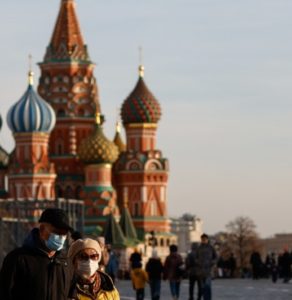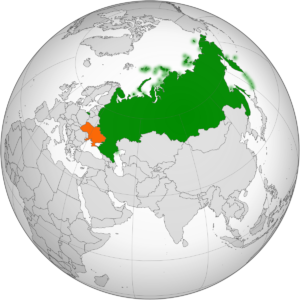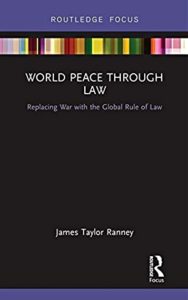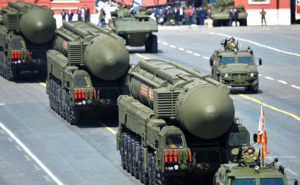Podcast: Play in new window | Download
Russia, Deescalation And Nuclear Disarmament
If the U.S. nuclear policy doesn’t change immediately and rapidly we are in a lot of trouble. Seventy-seven years ago, the United States became the first, and so far the only, country to use nuclear bombs when we destroyed the two Japanese cities of Hiroshima and then Nagasaki to frighten the Russians and secure an immediate and unconditional surrender of Japan in World War II. The dropping of these bombs was the first move against Russia that would devolve two years later in 1947 into the Cold War.
The threat of nuclear war has never eased and it is now imminent with the fighting in the Ukraine which could draw the U.S. and NATO into a direct conflict with Russia. We are now in a new stage of this war. It has become hot and so perilous it threatens all of humanity, all of earth’s creatures, with annihilation. Any mistake, any miscalculation would quickly and irretrievably doom us all. This almost happened during the Cuban Missile Crisis where nuclear war was avoided, according to scholars, by luck and decent leadership.
What has been the history of attempts to contain and roll back the threat of nuclear war? What has been tried and what is failed? What will it take to get the nine countries who possess nuclear weapons to give them up?
The Veterans for Peace organization spelled it out clearly. There should be a “no first use” policy and nuclear missiles must be taken off hair trigger alert. The United States should rejoin the Anti-Ballistic Missile Treaty and the Intermediate-Range Nuclear Forces Treaty, from which George W. Bush and Donald Trump withdrew, respectively. The U.S. should sign the Treaty on the Prohibition of Nuclear Weapons. Our country should initiate negotiations to reduce and eventually eliminate all nuclear weapons, as required by the Nuclear Non-Proliferation Treaty, to which the U.S. is a party.
To start, there must be a cease-fire in the Ukraine, the withdrawal of Russian forces, and guarantees of Ukrainian sovereignty and Russian security.
Peter’s recent article – Beijing should help mediate to end the Russia-Ukraine crisis
Guest – Peter Kuznick is a professor of history at American University and directs the Nuclear Studies Program. at that institution. Peter and Oliver Stone wrote The Untold History of the United States and also produced a showtime documentary series based on the book.
—-
World Peace Through Law: Replacing War with the Global Rule Of Law
In 1945, following World War I and World War II, wars that claimed millions of lives, the nations of the world enacted the United Nations Charter “to save succeeding generations from the scourge of war.” The Charter prohibits the use of military force except in self-defense after an armed attack by another state or when the Security Council approves it. The five victors of World War II, who became the permanent members of the Security Council, agreed to the Charter because they each received a veto over matters of war and peace.
The United States is a party to the 1970 Nuclear Non-Proliferation Treaty. Nevertheless, it continues to violate the provision of that treaty that requires the parties to move toward the elimination of nuclear weapons. Although he won the Nobel Peace Prize, Barack Obama’s administration advanced a policy, which Donald Trump and Joe Biden continued, to develop leaner and meaner nuclear weapons. The proposed U.S. budget calls for nearly $2 trillion over the next 30 years to build two new bomb factories, missiles, planes, submarines and redesigned warheads. In spite of the UN Charter and the Nuclear Non-Proliferation Treaty, we are now facing the most dangerous threat of nuclear war in the last 60 years.
Guest – James Ranney is a retired Adjunct Professor at Widener Law School, co-founder of the Jeanette Rankin Peace Center, a legal consultant to the UN International Criminal Tribunal for the Former Yugoslavia, and a board member of the Project for Nuclear Awareness. Professor Ranney has written a book called “World Peace Through Law: Replacing War with the Global Rule of Law.” In this book, he calls for arms reduction, including the abolition of nuclear weapons, and global alternative dispute resolution mechanisms, with enforcement mechanisms.
—————————




